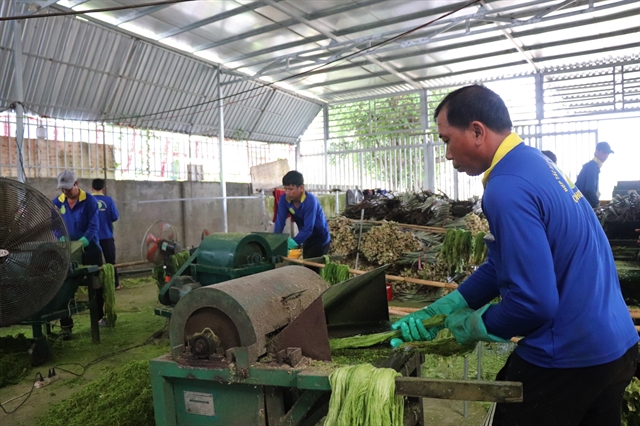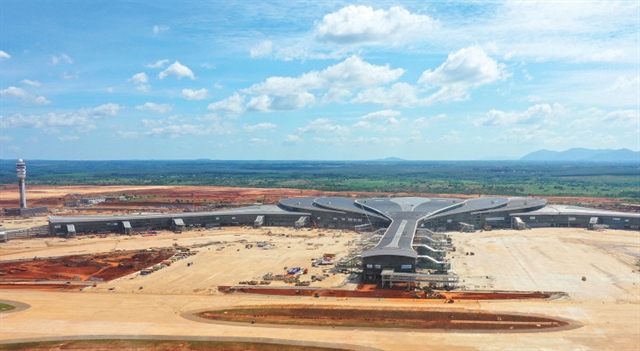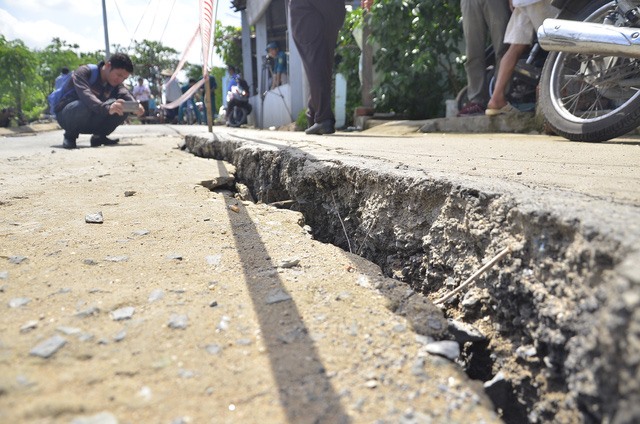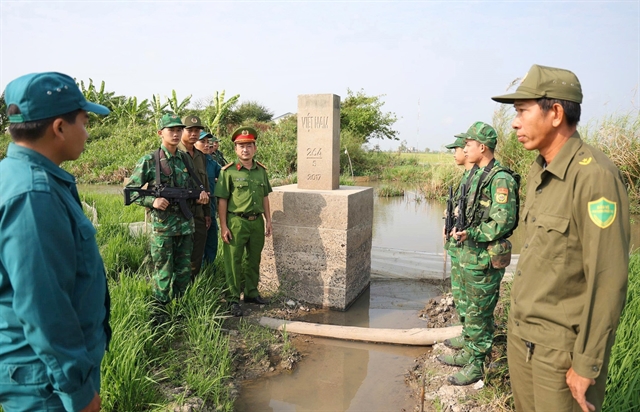 Environment
Environment

HCM City has 40 landslide locations including 23 dangerous areas near rivers and canals in eight districts, according to the city’s Department of Transport.
 |
| A crack found in Nhà Bè District’s Nhơn Đức Commune in HCM City last week. — Photo tuoitre.vn |
HCM CITY — HCM City has 40 landslide locations including 23 dangerous areas near rivers and canals in eight districts, according to the city’s Department of Transport.
Nhà Bè District has the highest number of landslides with 16, including 11 dangerous landslides, followed by Thủ Đức and Cần Giờ districts with five in each district.
Deputy Chairman of the HCM City People’s Committee, Lê Thanh Liêm, has asked the city’s Department of Transport to work with agencies to carry out surveys of landslide-prone areas and submit the reports in June.
The city’s Department of Transport has recommended that district people’s committees urgently relocate people who live in the landslide areas.
Nhà Bè District has relocated eight households near the Rạch Tôm River to a safe place, according to Bùi Hòa An, deputy chairman of the district’s People’s Committee.
Nguyễn Văn Tám, deputy director of the city’s Department of Transport, said the department has 33 embankment construction projects, but they are behind schedule due to a lack of funding and delays in acquiring land, as well as compensation payments.
The department has recommended that the municipal People’s Committee speed up efforts to approve funds to begin the projects.
The city’s People’s Committee has also directed the city police and the Department of Natural Resources and Environment to work with Bình Dương and Đồng Nai provinces to strictly deal with illegal sand mining in the Sài Gòn and Đồng Nai rivers.
The city’s Department of Construction and the district people’s committees have responsibility to strictly deal with encroachment on canals and rivers.
The city’s People’s Committee will provide VNĐ20 million (US$900) to VNĐ25 million ($1,100) for each household to support their relocations. — VNS




